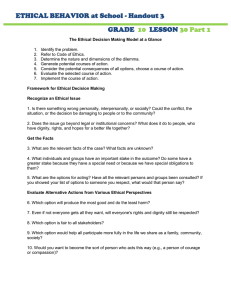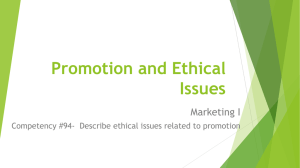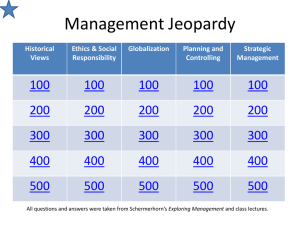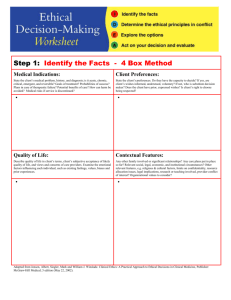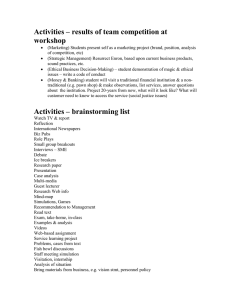Ethical research - guidelines for students
advertisement
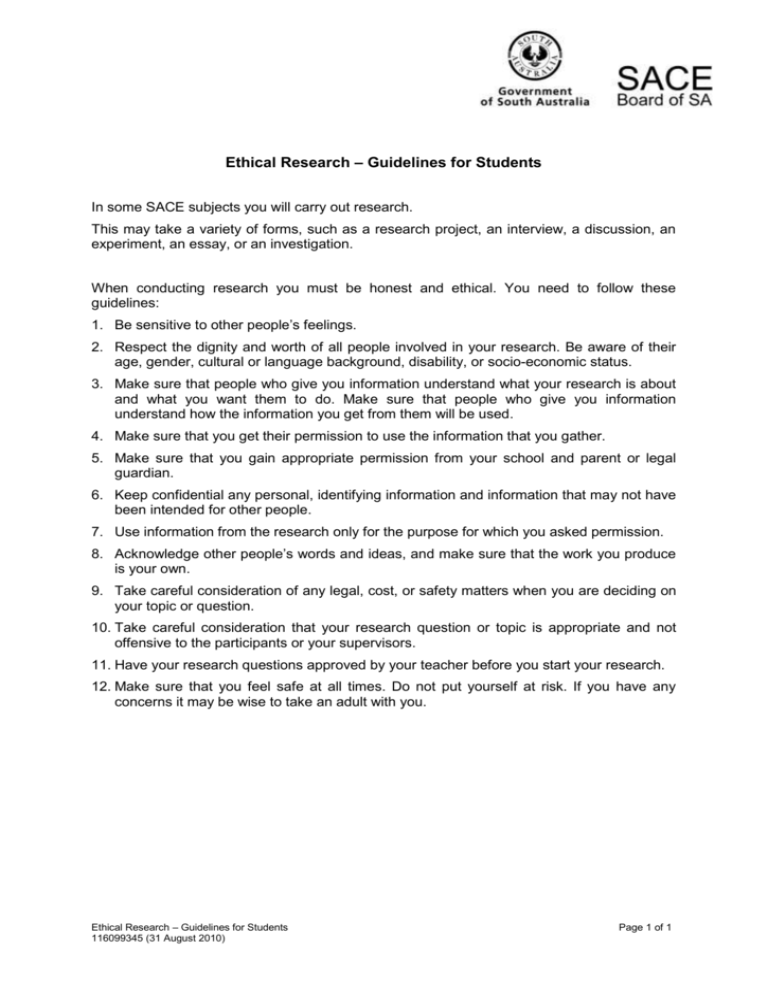
Ethical Research – Guidelines for Students In some SACE subjects you will carry out research. This may take a variety of forms, such as a research project, an interview, a discussion, an experiment, an essay, or an investigation. When conducting research you must be honest and ethical. You need to follow these guidelines: 1. Be sensitive to other people’s feelings. 2. Respect the dignity and worth of all people involved in your research. Be aware of their age, gender, cultural or language background, disability, or socio-economic status. 3. Make sure that people who give you information understand what your research is about and what you want them to do. Make sure that people who give you information understand how the information you get from them will be used. 4. Make sure that you get their permission to use the information that you gather. 5. Make sure that you gain appropriate permission from your school and parent or legal guardian. 6. Keep confidential any personal, identifying information and information that may not have been intended for other people. 7. Use information from the research only for the purpose for which you asked permission. 8. Acknowledge other people’s words and ideas, and make sure that the work you produce is your own. 9. Take careful consideration of any legal, cost, or safety matters when you are deciding on your topic or question. 10. Take careful consideration that your research question or topic is appropriate and not offensive to the participants or your supervisors. 11. Have your research questions approved by your teacher before you start your research. 12. Make sure that you feel safe at all times. Do not put yourself at risk. If you have any concerns it may be wise to take an adult with you. Ethical Research – Guidelines for Students 116099345 (31 August 2010) Page 1 of 1


